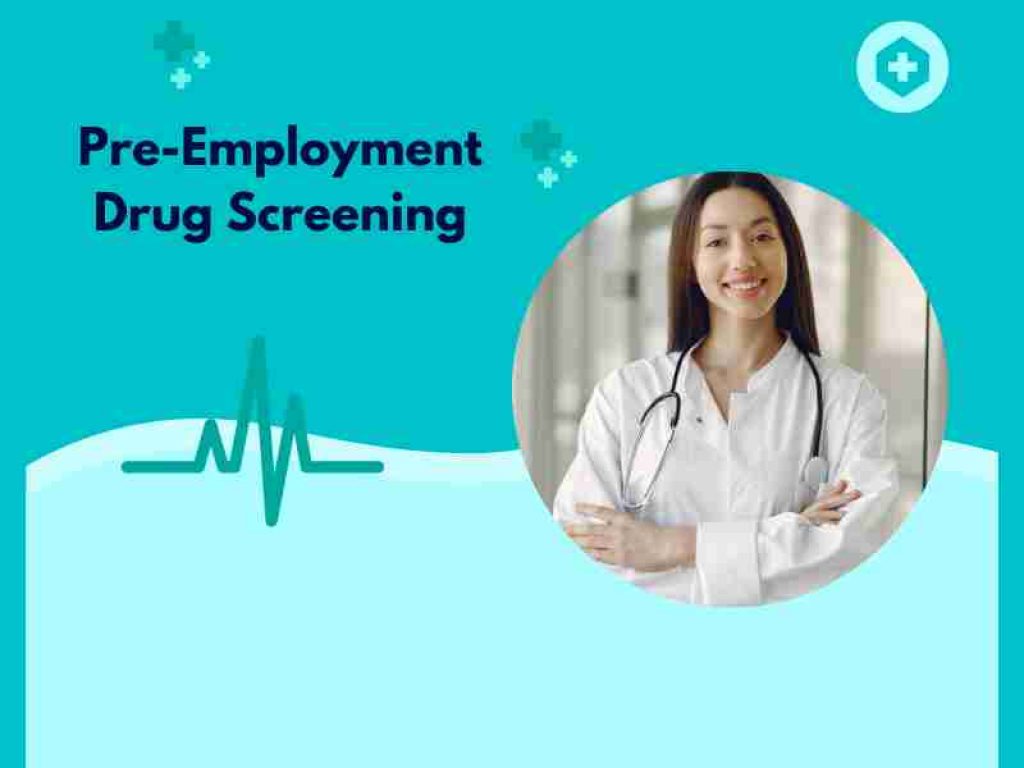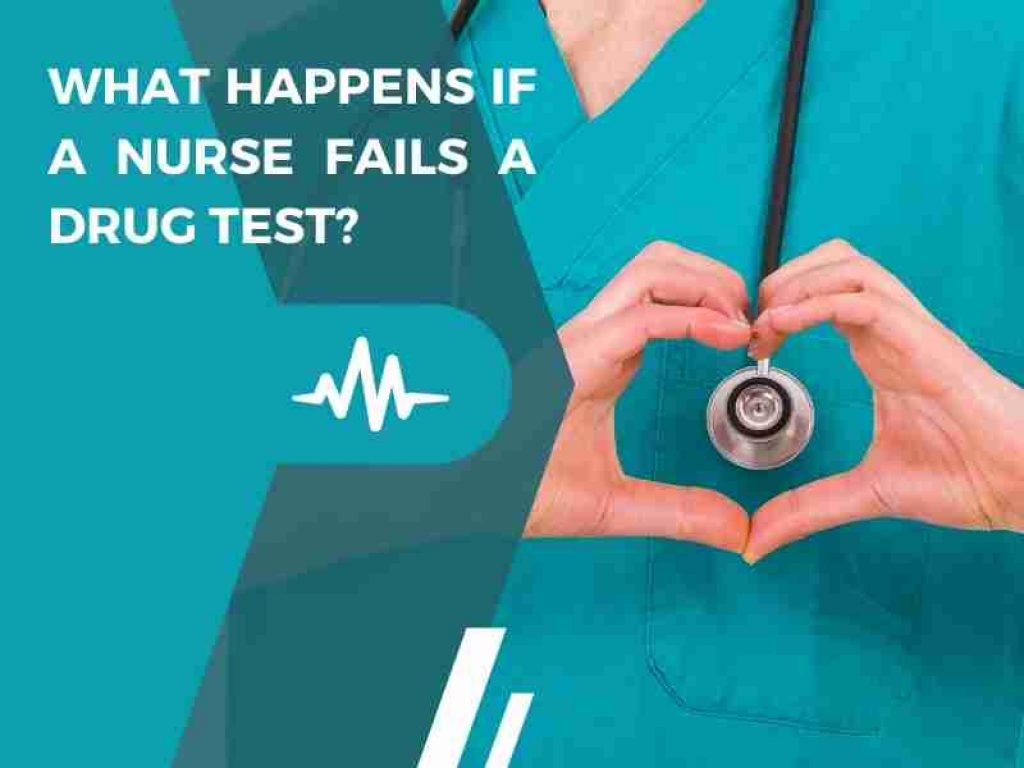
What Happens If A Nurse Fails A Drug Test?
Many companies need help to implement a drug-testing policy for their staff. Where to find reliable information about drug tests, how they work, what substances are examined, how to interpret the findings, etc. Fair recruiting procedures need several measures and regulations on the part of employers.
In addition, businesses must follow federal and state drug screening requirements and their own drug policy. This policy covers any employee in any industry. Pre-employment drug screening is increasingly common among many nurses, including nursing.
What is a pre-employment drug test, and what are the potential repercussions for nurses who test positive?
What exactly is a pre-employment drug screening?
An applicant’s usage of illegal drugs or excessive reliance on prescribed medication can be revealed by a pre-employment drug screening. Pre-placement drug testing may also be utilized for workers who are returning to duty following an injury or absence.

It is normal to practice for potential employers to conduct drug tests on job applicants, with the results sometimes being a deciding factor in whether or not to extend an offer of employment. Commonly, illicit substances are checked for in these kinds of drug tests: (but can test for others if needed).
- Cocaine (coke, crack)
- Opiates (heroin, opium, codeine, morphine)
- Phencyclidine (PCP, angel dust)
- Methamphetamines (meth, speed, crank, ecstasy)
- THC (cannabinoids, marijuana, hash)
Pre-employment drug testing helps businesses protect their most valuable asset, their employees, from the dangers of drug abuse in the workplace. Pre-employment drug testing is especially important in high-risk nurses like nursing and medicine, where the expense of worker’s compensation claims related to drug abuse is high.
Random Testing:
It’s not uncommon for random drug tests to be performed on nurses. However, this is often done only in situations with an elevated risk of drug abuse. It could be the situation if drug abuse amongst staff members has become an issue at the hospital or other establishments.
A nurse may also be asked to take a drug test if she suspects she is abusing drugs. It is common practice to conduct random drug tests once every three months or once every month. The most prevalent reason for random drug testing in nursing is to catch a nurse who has developed a drug dependency through careless use.
Pre-Employment Drug Testing:
A drug test is often required as part of a company’s or healthcare facility’s pre-employment policies, regardless of whether the applicant is currently enrolled in nursing school, has recently graduated from nursing school, or is seeking new employment as a nurse. It is also possible to request post-employment drug testing.
Some nurses fail a drug test even though they do not purposefully use illegal nurses. One of the most common causes of a positive drug test result in a nurse who has not used drugs is prescription medications that may contain illegal substances. Those medications, for instance, may have trace amounts of methamphetamine. A nurse who uses these drugs inappropriately or without a prescription may face the same consequences as their patients.
What is the Drug Testing policy for Nurses?
Different hospitals and policy facilities have different policies about drug testing nurses. However, whether the hospital or a third party performs the drug testing, most facilities adhere to the same fundamental practices. Nursing facilities that employ nurses must have a drug testing procedure by federal law. The Federal Drug Testing Policy Act of 1988 establishes guidelines for the drug testing program.
Additionally, per federal policy, any nurses participating in a federally funded job or training Drug are subject to a drug test. Nurses are not immune to pre-employment drug testing when applying to work in a hospital. To get hired as a nurse, you may need to take a written exam and submit to a drug test at many hospitals.
Policy drug testing of nurses is intended to accomplish the following:
- To vet potential nurses thoroughly.
- Patient care nurses must meet two criteria.
- To eliminate the Drug harm that comes with using illegal drugs in nursing.
- No one in the workplace ever drinks or uses drugs while on the clock.
- For the protection of in-hospital residents, out-of-hospital guests, and staff members.
What happens if a nurse fails a drug test?
If a nurse’s application is denied or put on hold because of a positive drug test result, likely, the nurse isn’t going to get the job. In addition, if a nurse fails a drug test on the job, their employer is obligated to report the incident to the state’s nursing board.

Even while marijuana usage is allowed in some nations for recreational purposes, many employers will terminate your employment if they find out you’ve used the Drug legally. You should consult an attorney without delay. The board may take disciplinary action, such as revoking the nurse’s license or suspending their duties, after receiving a negative drug test notification.
These things can happen even if the necessary medications are present or if someone touches them unintentionally.
Severe Penalties:
Even a false negative on a drug test can have disastrous consequences, which may include:
- Financial penalties
- The Termination of Employment
- License cancellation or suspension
- Practical Restriction
- Programs for treatment
- Legal Redress
You can decrease or eliminate some of these fines if you have legal representation to help you prove your fitness as a nurse.
Reputation:
You have established your career as a nurse on the reputation that you provide essential medical treatment to needy individuals. Even a false positive on a drug test might damage your professional reputation and make it difficult to get work in the future. You should consult a lawyer as soon as possible to repair your reputation.
With the assistance of an attorney, you may construct a defense tailored to your specific circumstances, thereby safeguarding your professional standing and financial stability. A failed drug test, whether due to a false positive or an honest mistake, should not end your nursing career.
What are the causes of Drug test failure?
A failed drug test is not necessarily career-ending for a nurse. Misleading positive results are possible. Accurate findings from a urine drug test depend on the proper collection, labeling, and storage of the specimen. Despite being legally given to the nurse, some medications may include trace amounts of drugs, including amphetamines and barbiturates, that could be detected in a drug test.
However, if you are a nurse and have a substance abuse problem, the first step is to accept that you have a problem and seek help. Substance-abusing social workers in New York can voluntarily surrender their licenses and enter treatment through the state’s Professional Assistance Program.
These professions may be granted immunity from prosecution for engaging in bad practice or being chronic substance abusers.
What happens if you fail a drug test and how to defend yourself?
Should a nurse in New York fail to meet standards, the Board of Regents has the authority to suspend or revoke their license without prior notice. To protect your nursing license, you can speak with a lawyer immediately.
If you need assistance preparing a defense for your license, we can provide it. A defense counsel for a nurse who has failed a drug test can argue that inaccurate findings were obtained from the urine test because of human error during collection and handling.
However, if the positive drug test result was the result of medication that was properly prescribed for your medical condition, the attorney defending your nursing license can demonstrate to the board that you are fit to practice nursing despite the positive drug test.
If you fail a drug test while taking medication, an attorney specialized in nursing license defense may be able to demonstrate that you are still capable of working and that no supervision is necessary due to the lack of addiction.
Obtaining a professional evaluation from an addiction specialist psychologist or psychiatrist can provide helpful evidence. A skilled lawyer may be able to get your sentence reduced and will certainly fight for your right to privacy. Your lawyer may be able to negotiate a consent order with a set penalty with the state board for professional medical conduct.
Since participation in the Professional Assistance Program necessitates the immediate revocation of the nursing license and the observance of stringent rules and regulations for the subsequent five years, it should be the last alternative.
If you’re a nurse accused of drug abuse, your best bet for protecting your professional license is to speak with a skilled defense attorney as soon as possible. Because losing your nursing license could mean losing your job and income, it’s important to have legal representation.
Do Medical nurses Go Through Weed Drug Tests?
Many individuals believe that because no state laws mandate it, nurses are exempt from drug testing for marijuana. However, regulations vary by jurisdiction, and drug testing is often mandatory for nurses.
For nurses, THC-specific substance abuse testing is permitted in some states. Still, in others, a positive test result for THC or any other form of marijuana is an automatic termination of employment. Nurses should always double-check with their state’s nursing board to determine what laws pertain to drug testing for marijuana.
Do Drug Tests with Travel Nurses?
Nurses who travel for work are frequently subjected to random drug testing. A nurse who doubts passing a drug test for marijuana before an overseas assignment should discuss her concerns with her employer in advance. Drug testing is required of many traveling nurses who interact with patients or guests. Illegal drugs may contaminate the hospital or facility from elsewhere.
Additionally, employers and hospitals may randomly test for drugs like marijuana and Drug on nurses who provide home healthcare. Not all medical facilities can guarantee that nurses won’t take drugs in their spare time. Home health nurses care for people of all ages, including the young and the elderly, who are often the most at-risk.
Drug regulations vary greatly from one nation to the next. In the UK and other European countries, for instance, medical marijuana in tiny doses is lawful for nurses to use in their work. If you are a nurse and want to know if your country has any specific rules regulating drug testing for nurses, you could ask your employer or healthcare facility.
Do Nurses get Hair Drug Tested?
Medical professionals such as nurses, doctors, and other hospital employees can be screened for drug misuse using a standardized five-panel drug test. However, thanks to scientific advancements, hair drug testing is now often used by businesses and healthcare facilities. A nurse’s drug use during the past few months, or even 90 days, may be detectable by hair testing.
A hair follicle test can detect drugs an employee may have used before starting work. Marijuana, cocaine, heroin, PCP (phencyclidine), methamphetamine, and designer drugs can all be detected using hair follicle testing. They look for evidence of drug and alcohol usage within the previous three months.
These tests are growing in popularity in workplaces and medical facilities despite their invasive nature and higher price tags compared to traditional urine drug screening. This is because they paint a more accurate picture of an individual’s drug use for employers and workers.
Do you get Drug Tested in Nursing schools?
A drug test is often a prerequisite for nursing school admission at many institutions. Most schools have a strict no-tolerance drug policy; thus, this is necessary. This regulation has been put in place for the sake of the student’s well-being and the protection of the campus community. Students are less likely to be under the influence of drugs when assisting clients, which is an added benefit.
Testing is often done during admission to nursing programs, though students may also be tested at random times throughout the academic year. To participate in the program, all hopefuls must pass a drug test. There is often a second opportunity for students who fail a drug test due to a positive result. If it was their first attempt or they did not follow through on their treatment plan within a given time frame, they may be obliged to undergo an examination and treatment program.
Nurses who test positive for drugs again may be kicked out of their training. Additionally, if nursing students use prescription medication, they must notify their school and produce documentation from their doctor. Medications should be stored discreetly, out of the reach of other students.
Conclusion
Nurses must maintain professional standards of conduct when caring for patients. What about drug testing for nurses? Because a victim of abuse cannot speak for themselves or assist others, the hospital must maintain order among its medical staff.
As a nurse, you should always double-check with your workplace or nursing school to determine if and when you might be subjected to a drug test.
FAQ’s
Is drug testing mandatory for nurses?
Drug testing is often a requirement for admission to nursing school and may also be conducted at random times throughout the academic year. Additionally, some employers may require drug testing as part of their hiring process.
What if a nurse tests positive for prescription medication?
If a nurse tests positive for prescription medication, they must notify their school or employer and provide documentation from their doctor. Medications should be stored discreetly, out of the reach of other students.
What are the consequences of failing a drug test?
The consequences of failing a drug test can vary depending on the severity of the violation. This could include suspension or termination of employment, as well as being required to undergo an examination and treatment program.







